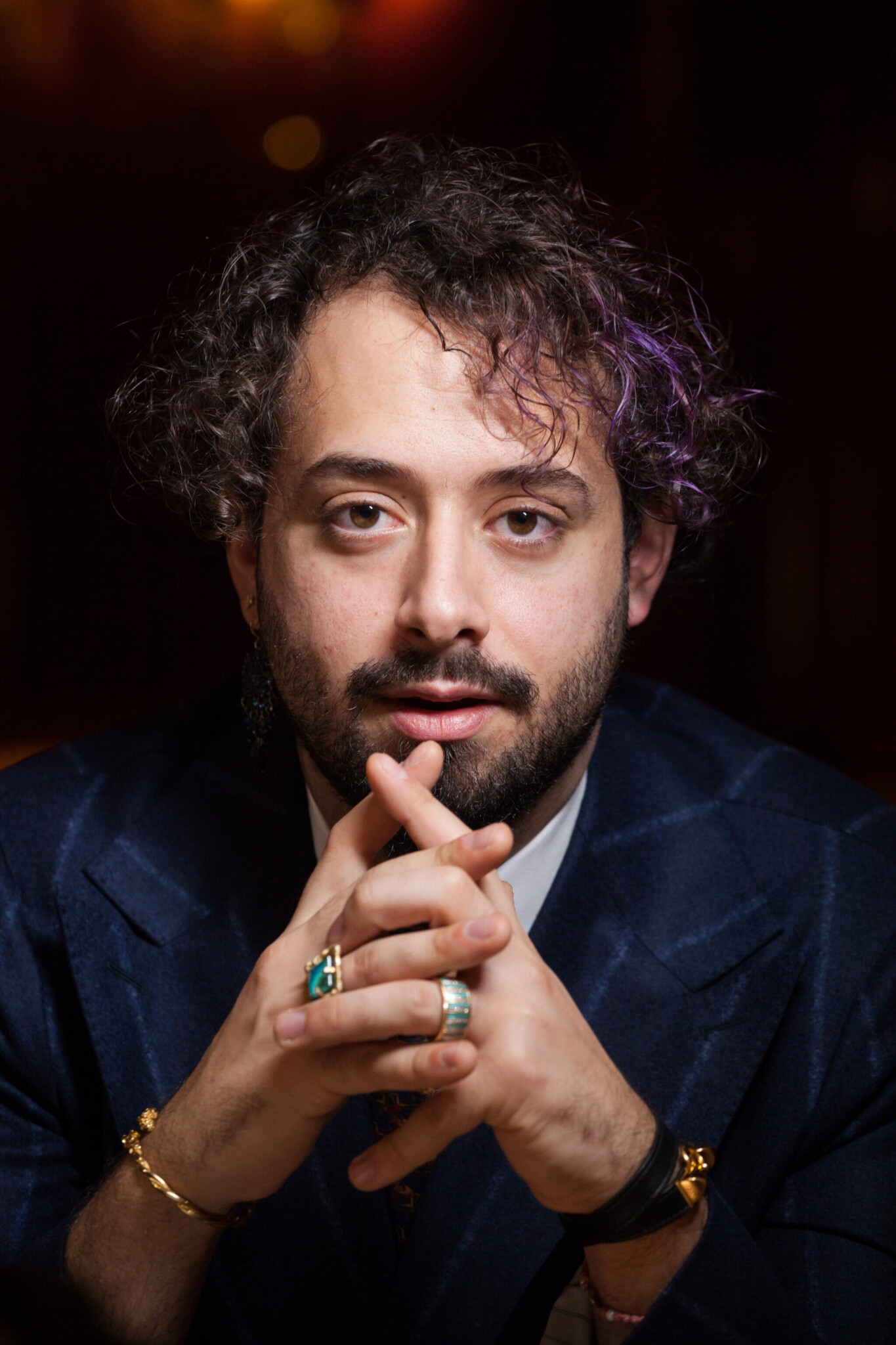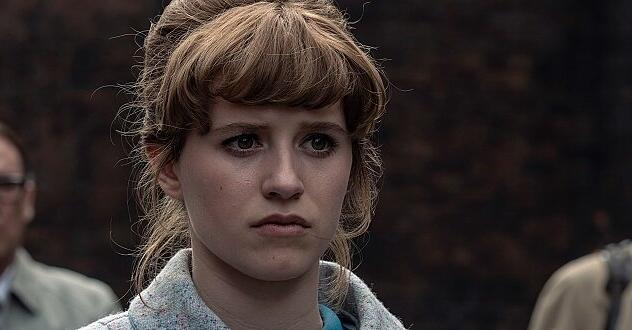The Auschwitz trials from 1963 to 1965 were the focus of two German feature films about ten years ago: In the Labyrinth of Silence (2014) by director Giulio Ricciarelli tells the story from the perspective of a young prosecutor, while the actual operator of the Fritz Bauer trials remained in the background. . On the other hand, Lars Kramm's film The State v. Fritz Bauer (2015) focuses on the character of the Hesse state prosecutor, Fritz Bauer.
Now Annette Hesse, known for her work in series such as “Weißensee” (2010-2018), “Ku’damm 56/59/63” (2016-2021) and “Wir Kinder vom Bahnhof Zoo” (2021), has adapted it. For the Disney+ streaming service, her own novel “Deutsches Haus,” published in 2018, as a series of the same name, once again sheds an imaginative light on this first German attempt to legally deal with the horror of the Holocaust and concentration camps. .
I had never heard of Auschwitz
Ludwig (Hans-Jochen Wagner) and Edith Bruhns (Anke Engelke) run the eponymous Frankfurt bar “Deutsches Haus”. Their daughter Eva (Katarina Stark) works as a Polish translator for several companies when she receives a phone call from the Frankfurt prosecutor's office on Sunday. In order to make it clear that Eva, like most of her generation, has never heard of Auschwitz or the extermination camps, the screenplay inserts a scene that might seem humorous if the viewer's laugh didn't get stuck in her throat: When she is taken to the prosecutor's office, they are asked to translate the statement of a Polish witness without providing an introduction to the context .
She translates: “Then they led 850 Soviet guests to the basement of the hostel. They turned on the light downstairs. The next morning, most of the guests were enlightened. Eva realizes the absurdity of the sentence and looks up some terms in the dictionary: “hostel” should be called “block,” as well as “prisoners” instead of “guests” and “gas” instead of “light.” So the Soviet prisoners were not “enlightened” but were “gassed”.
Back home, Eva looks up the keyword “Auschwitz” in Brockhouse's dictionary and finds a meaningless triple phrase. Then Eva's sister, Annegret (Ricarda Seyfried), said: “Then maybe it wasn't that important.”
A society that only wants oppression
The creators of the series do not attach much importance to production design in such a way that clothes, hairstyles, home furnishings, cars and the like refresh the atmosphere of the early 60s. The significance attached to, say, purchasing a washing machine or a sports car for Eva's prospective fiancé, Jürgen (Thomas Breen), suggests an expanding consumer society closing in on the past. Important details in this context: Jürgen's father, Walter Schurmann (Henri Hubchen), amassed a huge fortune through a mail order company.
All these aspects, together with the cheerfulness evident, for example, in the regularly sold-out “Deutsches Haus” bar on the corner, shape the mood in German society, which wants to “look to the future.” He fights young prosecutors Hans Kübler (Max von der Groeben) and David Miller (Aaron Altaras) who are preparing for the first trial at Auschwitz under the leadership of Hesse state prosecutor Fritz Bauer.
22 SS guards from the former Auschwitz concentration camp are accused. The miniseries “The German House” focuses in particular on SS Hauptsturmführer Robert Mulka, deputy commandant of Auschwitz Rudolf Höss, who was executed in 1947, and on Wilhelm Böger, who was known to be particularly sadistic. Robert Mulka (Martin Horn) travels with his wife Erna (Hildegard Schröder) from Hamburg, where he clearly holds an important position. The couple stays in a suite at the Four Seasons, while witness Rachel Cohen (Iris Berbin) has to make do with a cheap pension.
Perpetrators are prosecuted, victims remain victims
In contrast to Molka, Wilhelm Boger (Heiner Lauterbach) is detained, but the guards treat him with respect—almost awe. When visiting his wife and daughters, he pretends to be a loving family man.
The running time of around five hours allows for the integration of several subplots, all of which are intended to contribute as mosaic pieces to the overall picture of German society in the 1960s – an approach that Annette Hesse knows well from her experience with the hit series “Ku'damm”, where she tackled elements of Similar and linked to her family memories. The series brings together an impressive cast of stars, with Anke Engelke and Hans-Jochen Wagner as well as Katharina Stark shining as Eva: her character's development is reflected above all in her appearance, which ranges from initial ignorance to horrified disbelief to shyness and shyness. The series was thus significantly shaped.
In addition, the poignant and ever-present music, which combines contemporary songs with Jewish chansons, contributes to the atmosphere. Although much is already known about the Auschwitz trials, including from the previously mentioned feature films, directors Issa Prahl and Randa Chahoud manage to look at the subject objectively through their sober production.
In addition, the directors do not manipulate the viewer with inappropriate feelings, but rather leave the final judgment to them themselves – not only regarding the concentration camp criminals, but also regarding the many other characters in this very watchable German mini-series.
“The German House”, Germany 2023. Screenplay: Annette Hess, Director: Randa Chahoud, Isabelle Prahl. 5 episodes, 54-62 minutes each on Disney+
The print edition of Tagespost supplements current news on die-tagespost.de with background information and analysis.

“Explorer. Communicator. Music geek. Web buff. Social media nerd. Food fanatic.”






More Stories
Who is the band Gojira that will perform at the Olympics opening ceremony?
SpaceX Moves Crew Dragon Spacecraft to West Coast After Multiple Space Debris Incidents
Stathis Karapanos – Hindemith Review: Complete Works for Flute